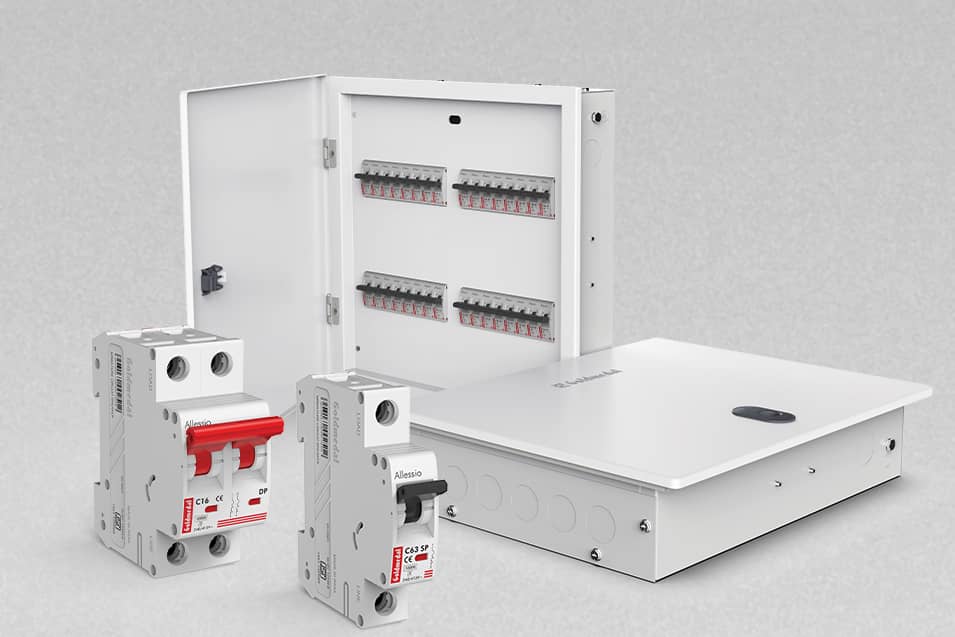What is a DB Box?
Ever wondered how electricity is safely distributed throughout buildings or large facilities? The answer often lies in a crucial device known as the Electrical Distribution Box, or DB Box. But what exactly is it, and why is it important? Let’s explore this further.
At its core, a DB Box is a vital component of any electrical system. It acts as the central hub, ensuring electricity is distributed safely and efficiently from a main power source (such as a power line or generator) to various circuits within a building. This distribution prevents overloading and potential damage by allocating the right amount of power to each circuit.
Consider your home: when you turn on a light or plug in a device, electricity flows from a central source through wires to different parts of your house. The db box manages this flow by dividing and directing power to the appropriate areas.
In industrial settings or larger buildings, DB Boxes play a critical role in handling higher voltages and multiple circuits. They also provide essential safety features like fuses, circuit breakers, and surge protection. This ensures the electrical system operates smoothly while minimizing risks of damage or hazards.
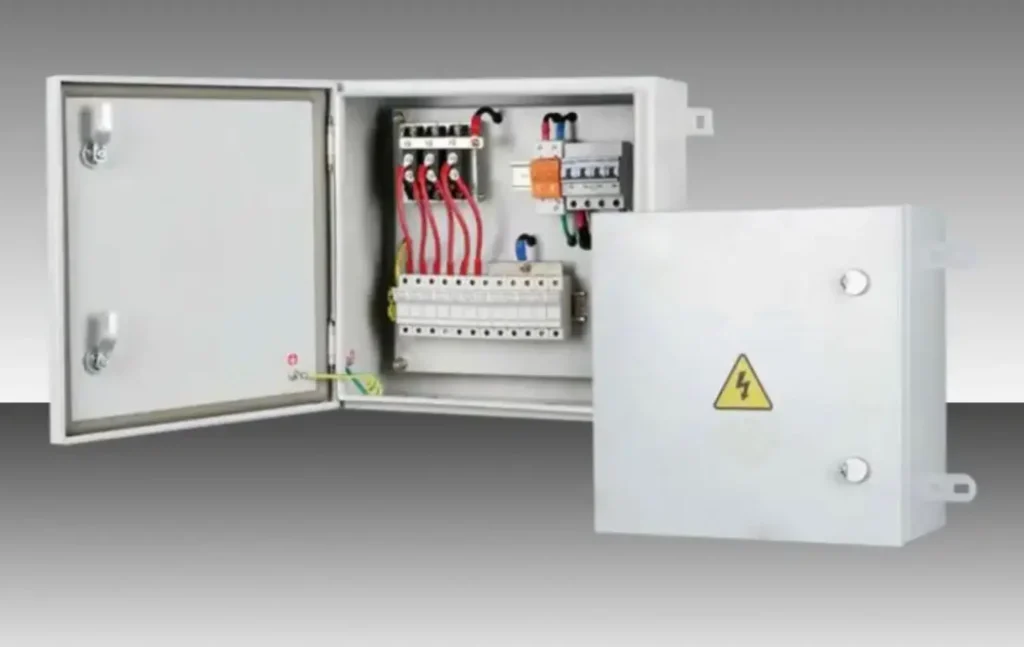
Main Types of DB Boxes
DB Boxes come in various forms, each tailored to specific applications and environments. Understanding these types is crucial for selecting the right one for your needs.
Low-Voltage Distribution Boxes
Low-voltage DB Boxes are designed for systems with electrical voltages typically under 1000V. They are commonly used in homes, small businesses, and light industrial settings to safely distribute power to lighting, appliances, and small equipment. These boxes usually include fuses or circuit breakers to protect against overloads and short circuits, ensuring safe operation in lower-voltage environments.
High-Voltage Distribution Boxes
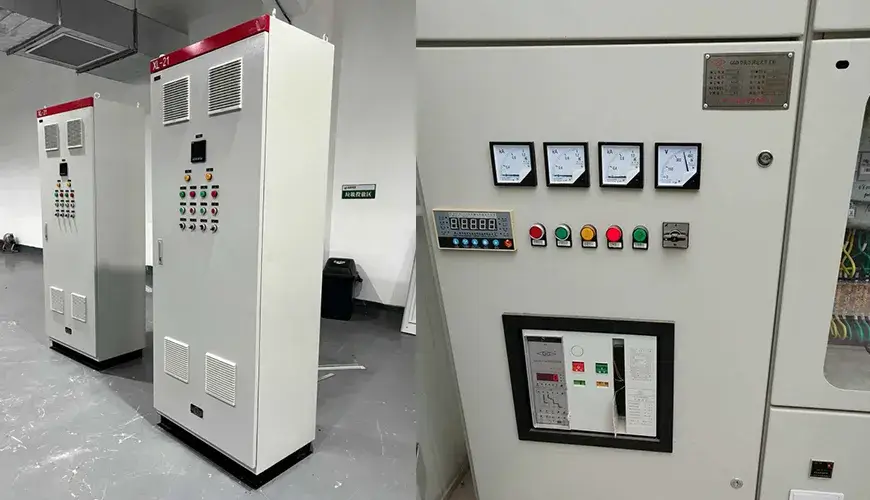
High-voltage DB Boxes are necessary for larger facilities or industrial setups, handling voltages of 1000V or higher. They are found in manufacturing plants, data centers, and power stations, where they supply electricity to heavy-duty machinery and large electrical systems. These boxes are equipped with advanced circuit breakers, surge protectors, and voltage regulators to maintain system stability and prevent hazards like electrical fires or equipment failure.
Outdoor and Indoor DB Boxes
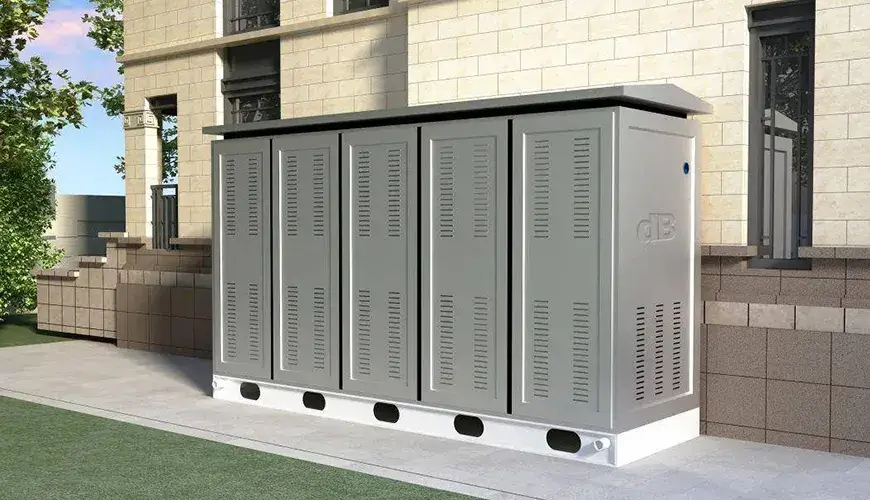
The installation location is a key factor in choosing a DB Box. Outdoor DB Boxes are constructed with weather-resistant materials to withstand rain, snow, or extreme temperatures, making them ideal for construction sites or outdoor stadiums. In contrast, indoor DB Boxes are designed for controlled environments within buildings, focusing on high safety standards while offering less protection against environmental factors1.
Smart Distribution Boxes
Smart distribution boxes integrate modern technology with electrical systems, featuring sensors and advanced monitoring tools. They provide real-time data on power consumption, circuit health, and predictive maintenance, which is particularly valuable in industries requiring high uptime, such as IT infrastructure or manufacturing. With capabilities like remote monitoring and automated load balancing, smart DB Boxes significantly enhance efficiency and safety.
Materials and Design Requirements for DB Boxes
The effectiveness and safety of a DB Box depend significantly on the materials used and its design. Let’s explore the common materials and essential design features that make a DB Box reliable and efficient.
Common Materials for DB Boxes
DB Boxes are typically constructed from materials that offer durability, safety, and environmental resistance. The most common materials include:
- Steel: Steel is widely used for heavy-duty DB Boxes due to its strength, durability, and resistance to impact and corrosion. It is ideal for industrial and outdoor installations where high-voltage systems are involved.
- Aluminum: Aluminum is a lighter alternative to steel, offering good corrosion resistance and environmental protection. It is suitable for residential or light commercial applications where weight is a concern.
- Plastic: Plastic DB Boxes are preferred for indoor or low-voltage systems. They are lightweight, cost-effective, and resistant to rust, making them suitable for residential settings. However, it’s crucial to ensure the plastic can handle the specific electrical load and environment.
Design and Protection Features
A well-designed DB Box must incorporate several safety and protection features:
- IP Rating (Ingress Protection): This rating indicates how well a DB Box protects its contents from dust and water. Outdoor or harsh environment installations require higher IP ratings, such as IP65, which means the box is dust-tight and protected against water jets.
- Fire Resistance: Fire safety is paramount. Many DB Boxes are made with fire-resistant materials to prevent the spread of flames in case of malfunctions or short circuits.
- Corrosion Resistance: DB Boxes must resist corrosion, especially in environments with harsh chemicals or salty air. Look for materials with high corrosion resistance or special coatings.
- Load and Size Considerations: The size and layout of a DB Box should accommodate all necessary components like circuit breakers, fuses, and wires without overcrowding. This ensures efficient operation and easy maintenance.
How to Install and Maintain a DB Box
Installing and maintaining a DB Box requires careful planning and regular upkeep to ensure safety and efficiency. Here’s a step-by-step guide on how to do it effectively.
Installation Process
Installing a DB Box is best handled by a certified electrician to ensure safety and compliance with electrical standards. Here’s an overview of the process:
- Location Selection: Choose a location that is easily accessible for maintenance but away from high-traffic areas or potential hazards. Ensure it is not in humid, steamy, or corrosive environments.
- Mounting: Securely mount the DB Box to a wall or surface, typically at a height of about 1.5 meters from the ground to facilitate easy access and safety.
- Wiring: Connect the electrical cables to the incoming power source (such as the main distribution panel) and the outgoing circuits. Ensure all connections are secure and comply with local electrical codes.
- Circuit Breakers and Fuses: Install appropriate circuit breakers or fuses inside the DB Box to protect each circuit from overloads or short circuits. Ensure these components are neatly arranged and labeled for easy identification.
Regular Maintenance and Checks
Regular maintenance is crucial for extending the lifespan of your DB Box and ensuring it operates safely and efficiently.
- Visual Inspections: Periodically inspect the DB Box for signs of wear, damage, or corrosion. Check for loose connections, frayed wires, or overheating.
- Cleaning: Regularly clean the DB Box to remove dust and debris, which can cause blockages or overheating. Use a soft brush or vacuum cleaner, ensuring the power supply is turned off during cleaning.
- Testing: Conduct regular tests on circuit breakers and fuses to ensure they function correctly. This includes checking for proper operation of over-current, short-circuit, and leakage protection.
By following these steps, you can ensure your DB Box remains in good working order, providing safe and reliable electrical distribution.
Why DB Boxes Are Critical for Electrical Safety
DB Boxes play a vital role in ensuring the safety of electrical systems by acting as a protective barrier against potential hazards. They monitor, protect, and manage the flow of electricity to prevent dangerous situations.
Circuit Protection and Overload Prevention
One of the primary functions of a DB Box is to prevent electrical overloads and short circuits, which can lead to fires, electrical shocks, or equipment damage. Circuit breakers or fuses within the DB Box automatically disconnect power if a circuit becomes overloaded, serving as a first line of defense against electrical malfunctions. These protective devices act like safety valves, preventing overheating and dangerous conditions by cutting off power when necessary.
Surge Protection
DB Boxes also provide crucial surge protection. Electrical surges, often caused by lightning strikes, faulty equipment, or power outages, can severely damage sensitive equipment. A DB Box equipped with surge protection can absorb these voltage spikes, diverting excess energy safely and keeping the electrical system intact. This feature acts like a lightning rod, safeguarding your home or facility from potential electrical damage.
Fire Safety
In high-voltage systems, even minor electrical faults can pose significant fire hazards. A well-designed DB Box incorporates fire-resistant materials and safety mechanisms to minimize fire risks. These materials prevent internal sparks or overheating from spreading, providing an extra layer of protection for both equipment and people nearby. This ensures that electrical systems operate safely and reliably, even in environments with high electrical demands.
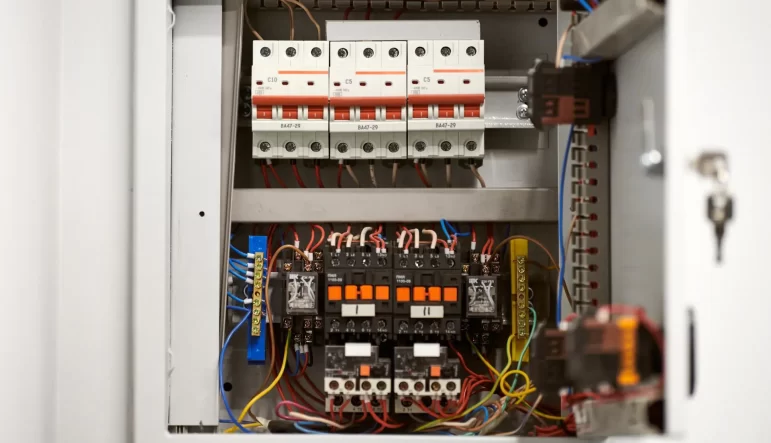
How to Choose the Right DB Box for Your Needs
Selecting the right DB Box for your electrical system can be straightforward if you consider a few key factors. Here’s a guide to help you make an informed decision:
Electrical Load Requirements
The first step is to determine the electrical load your system will handle. This depends on whether you’re powering a small residential home or a larger industrial facility with multiple machines.
- Residential Homes or Small Businesses: A low-voltage DB Box is typically sufficient for these applications.
- Larger Facilities or Industrial Applications: A high-voltage DB Box is necessary to handle the increased electrical load. If unsure, consult an electrician to calculate the total wattage required.
Environment and Location
Consider where the DB Box will be installed:
- Outdoor Installations: Choose a weather-resistant and corrosion-resistant box that can withstand rain, snow, dust, and extreme temperatures.
- Indoor Installations: In clean and controlled environments, a plastic DB Box might be suitable, but ensure it meets necessary protection standards like IP ratings.
Safety Standards and Certifications
Always verify that the DB Box has proper safety certifications:
- Look for marks like CE, IEC, or UL, which indicate compliance with international safety regulations.
Size and Space
Ensure the DB Box is large enough to accommodate all necessary components:
- Component Space: Provide enough room for circuit breakers, fuses, and wires to prevent overcrowding, which can lead to overheating or safety hazards.
- Future Upgrades: Leave extra space for potential upgrades or additions to your electrical system, as needs often grow over time.
FAQs
1. What is the lifespan of a DB Box?
The lifespan of a DB Box typically ranges from 8 to 30 years, depending on factors such as material quality, environmental conditions, and regular maintenance.
2. Can I install a DB Box myself?
While it is possible to install a DB Box yourself, it is highly recommended to hire a licensed electrician for safety and compliance with electrical codes.
3. How can I tell if my DB Box is overloaded?
Signs of an overloaded DB Box include frequent tripping of circuit breakers, excessive heat around the box, or flickering lights. If you notice these symptoms, have it checked by a professional.
4. Are MOREDAY DB Boxes suitable for both residential and industrial use?
Yes, MOREDAY offers a variety of DB Boxes suitable for both residential and industrial applications, with options for customization to meet specific needs.
Conclusion
Selecting the right Electrical Distribution Box is vital for ensuring the safety and efficiency of any electrical system. Whether your project is residential, commercial, or industrial, understanding your specific needs and choosing the appropriate DB Box can significantly impact performance. From low-voltage to high-voltage systems, and from indoor to outdoor installations, there is a suitable DB Box for every situation.
At QINJIA Electric, we provide a diverse range of high-quality, certified DB Boxes that adhere to the highest safety standards, offering long-lasting protection. Our boxes are customizable to fit your precise requirements, featuring advanced options like surge protection, fire resistance, and smart monitoring. With these features, you can have confidence that your electrical system is well-protected and reliable.
